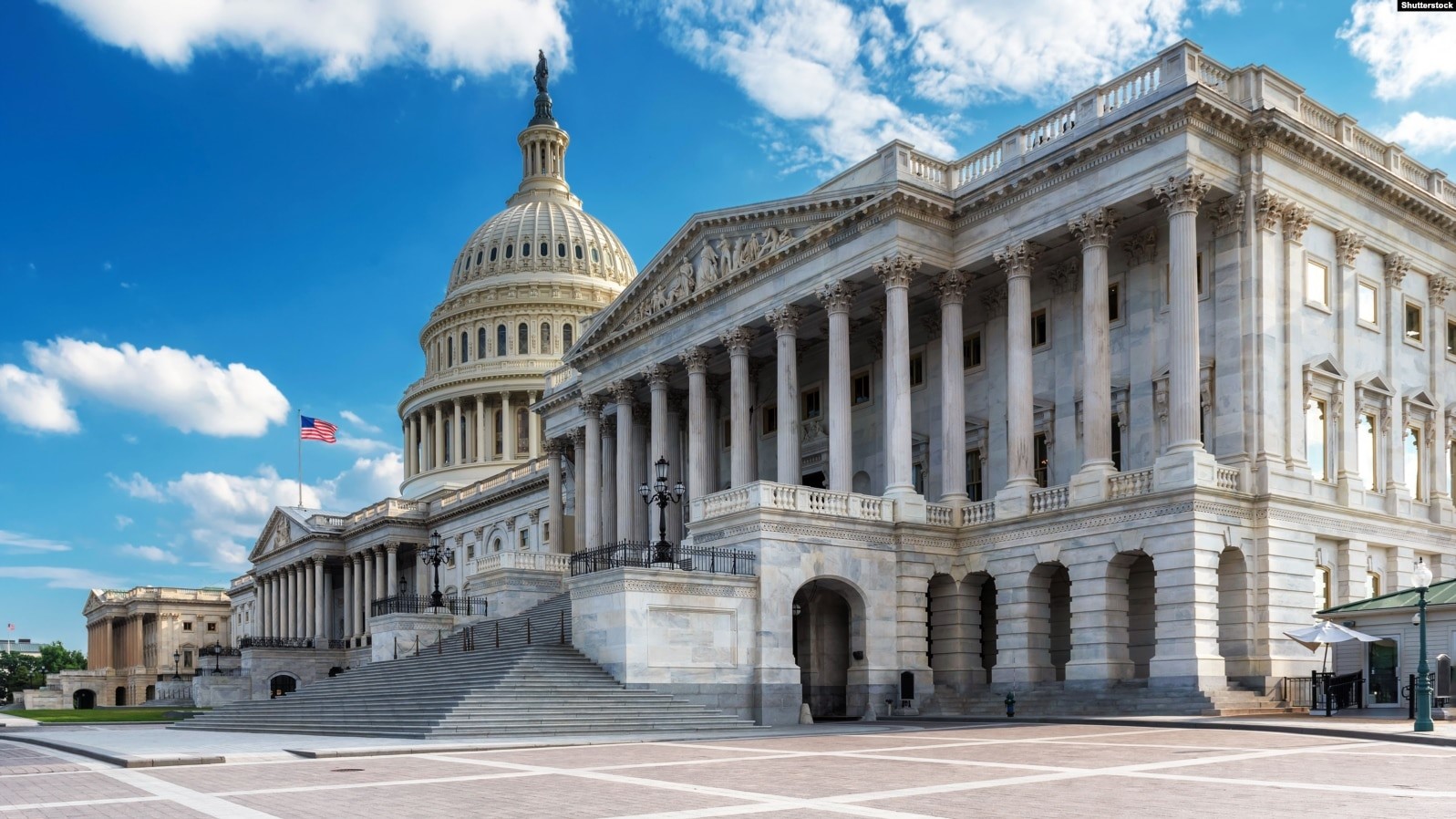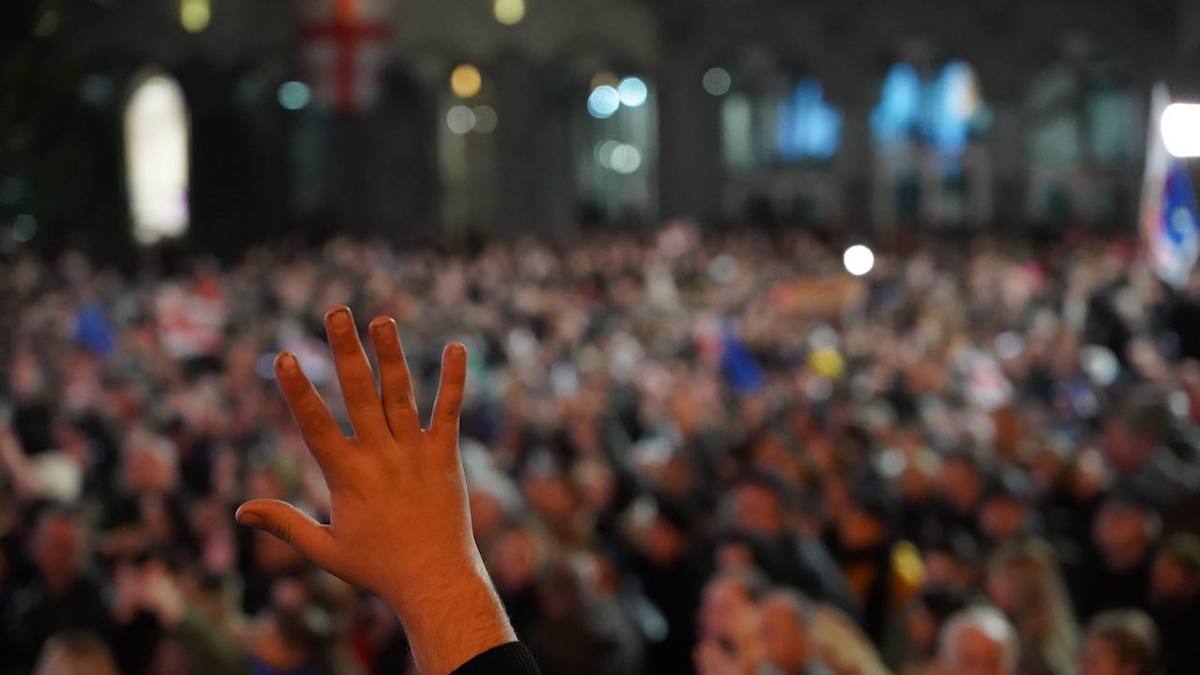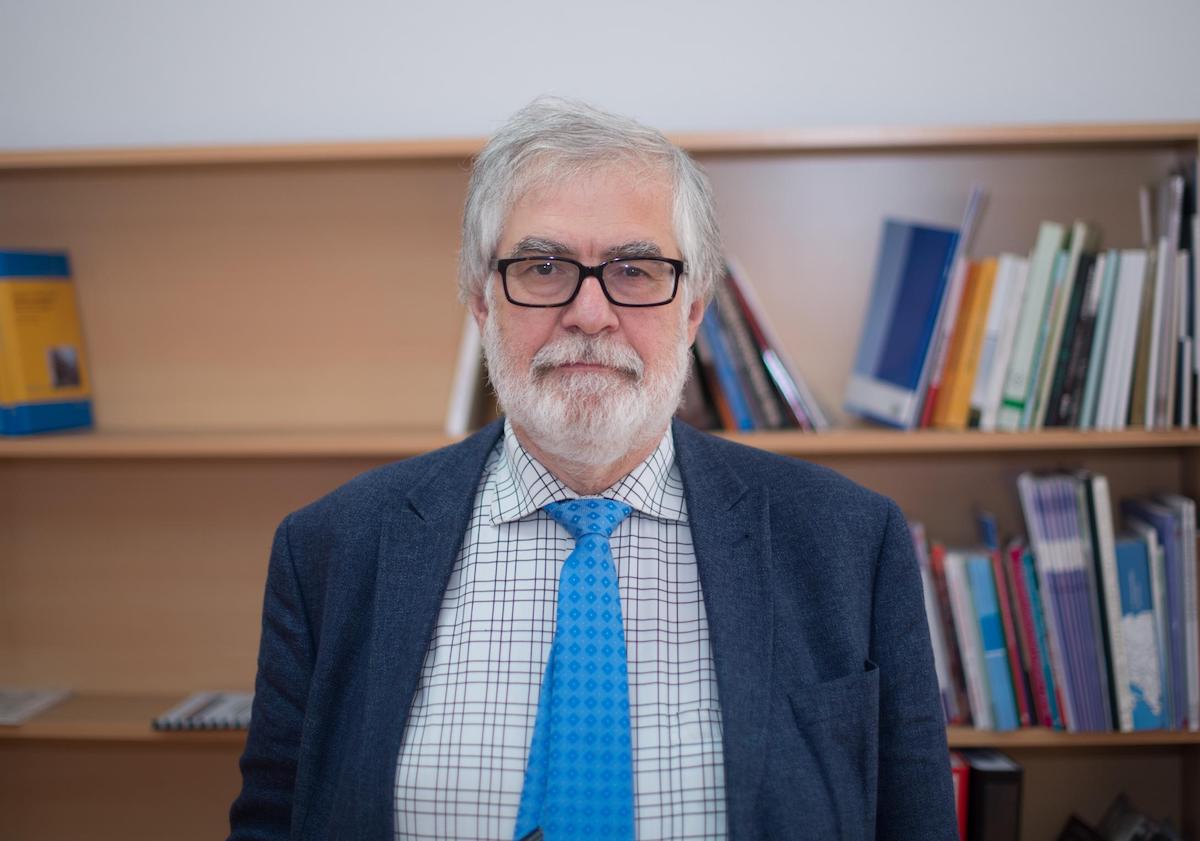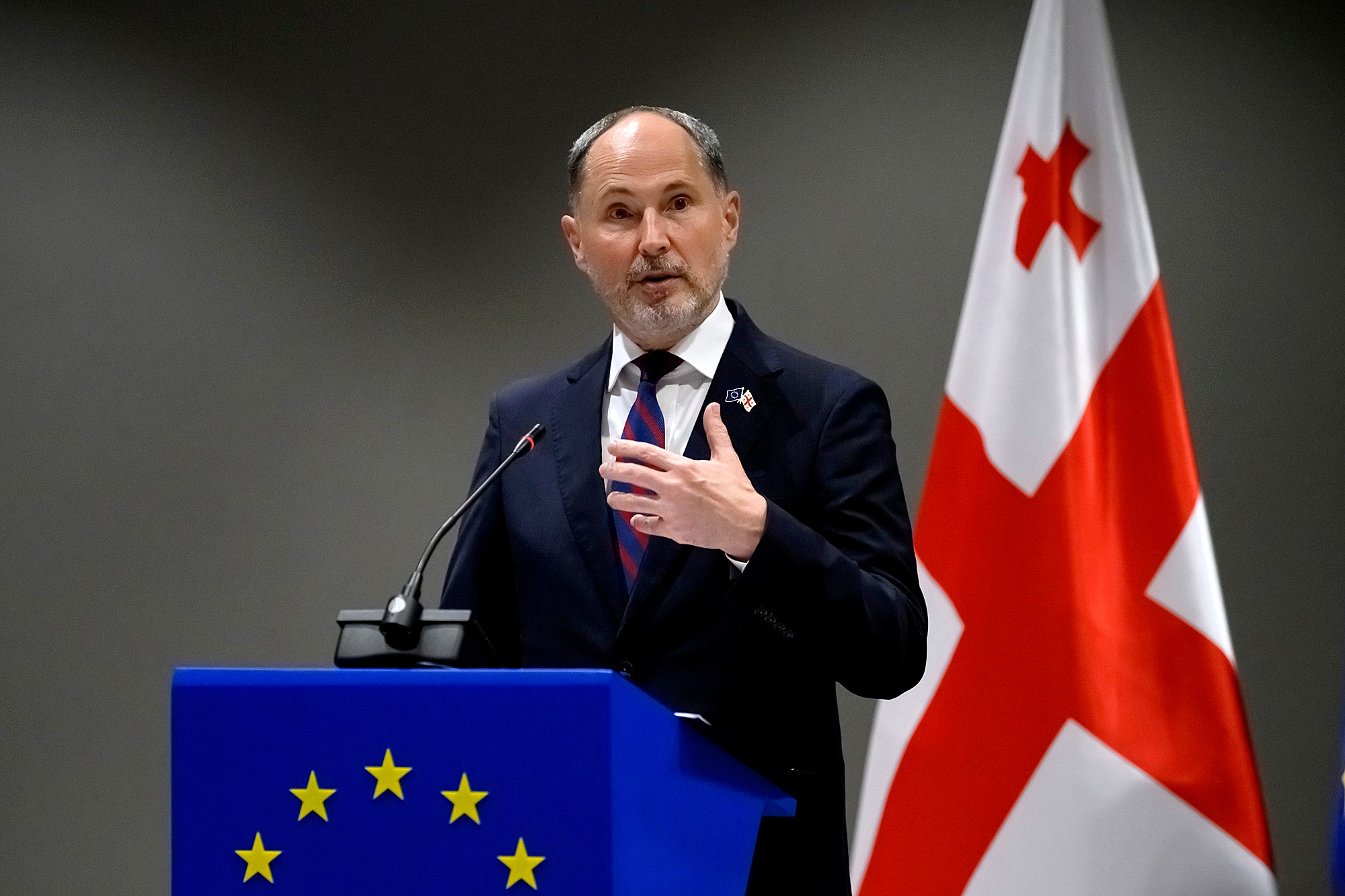Day: November 6, 2024
https://t.co/Nym85DrjEK
The News And Times Review #NewsAndTimes #NT #TNT #News #Times #World #USA #POTUS #DOJ #FBI #CIA #DIA #ODNI #Trump #TrumpNews #Israel #Mossad #Netanyahu #Ukraine #NewAbwehr #OSINT #Putin #Russia #GRU #Путин, #Россия #SouthCaucasus #Bloggers— Michael Novakhov (@mikenov) November 6, 2024
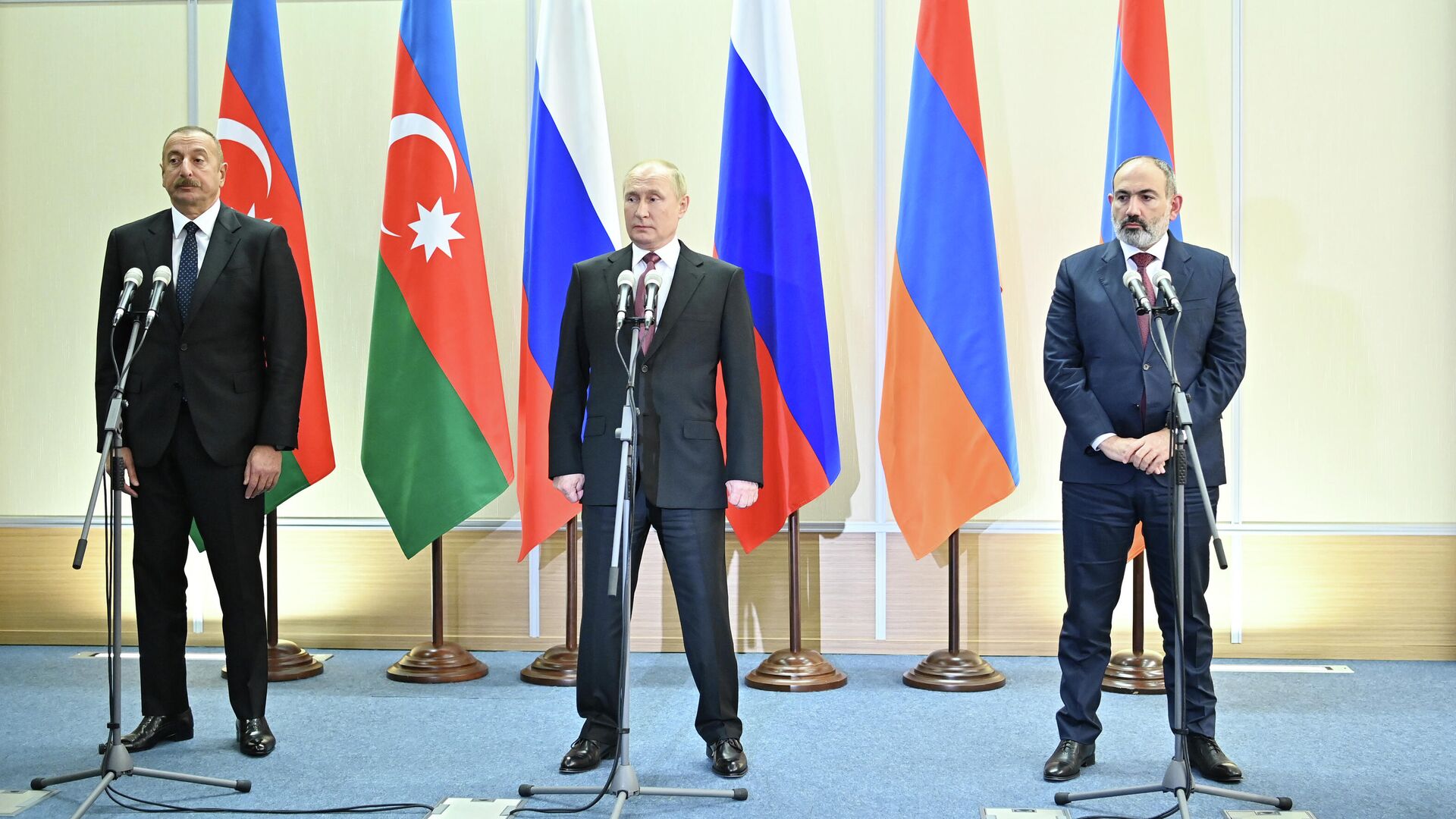
Armenia strengthens ties with USA
“If the final results of the US presidential election show that Donald Trump has won, Russia might instinctively believe that an era of isolationist policies has returned, and attempt to restore its influence in the South Caucasus,” Armenian political analyst Lilit Dallakyan told JAMnews.
She emphasized that the situation in the world has changed dramatically compared to Trump’s previous term (2016–2020). Dallakyan also recalled Trump’s promise to end the Russia-Ukraine war and noted that he once even threatened to “bomb Moscow” if Putin oppressed Ukraine. According to the political analyst, Moscow’s potential role as a mediator in the Armenia-Azerbaijan conflict resolution process will depend on Trump’s policies:
“If he once again adopts an isolationist policy, Russia’s role in the South Caucasus will grow. However, if Trump changes his approach and decides to fulfill his promises, this role may weaken even further.”
Commenting on the current political situation from Armenia’s perspective, Lilit Dallakyan also addressed recent statements from Moscow and Baku on the eve of the US presidential election.
- “US has raised the stakes”: Armenian expert on Biden’s letter to Pashinyan
- Yerevan: direct talks with Baku on unblocking routes “possible”
- “Kremlin is depriving Georgia and Armenia of European future” – Armenian expert
Moscow and Baku on ‘destructive Western interference’
In a recent interview with RIA Novosti outlet, Russian Foreign Minister Sergey Lavrov stated that a “hasty peace without a comprehensive consideration of Baku and Yerevan’s positions, as well as ground realities, will lead to no good.” Moreover, he warned that such an approach would create “additional risks of tension and potential conflict escalation.” According to Lavrov, a resolution requires not only significant efforts but also time:
“For this reason, unlike Western pseudo-mediators, we are not pushing our partners toward a rushed peace agreement.”
The Russian Foreign Minister believes that “destructive external interference” must be excluded from the peace process.
Furthermore, Lavrov is convinced that “Washington and Brussels’ attempts to sideline Russia from the Armenia-Azerbaijan normalization process only heighten security threats in the region.”
“If Yerevan finds the strength to free itself from the harmful influence of its patrons, a peace agreement between the two states will become possible,” Azerbaijan’s Security Council Secretary Ramil Usubov stated on the same day.
Usubov also claimed that certain foreign countries and organizations are using Armenia’s territory to create “new centers of threat,” further exacerbating the tense situation in the South Caucasus:
“Not only Armenian revanchists but also major powers that do not accept Azerbaijan’s independent will and regional leadership should draw the right conclusions from past experiences and not forget the strength of the ‘iron fist.’ As the victorious nation and center of military power in the region, Azerbaijan can compel defeated Armenia toward lasting peace, meaning the signing of a peace agreement.”
Political analyst Lilit Dallakyan
Both the West and Armenian desire a swift peace, says political analyst Lilit Dallakyan:
“There is no alternative to peace. However, a peace agreement should be more than just a document. It mustn’t be a mere piece of paper without guarantees and implementation mechanisms. It shouldn’t be a meaningless document like the trilateral statement of November 9.”
Dallakyan interprets Lavrov’s comments as Moscow’s attempt to delay the peace deal in order to maintain its influence in the Caucasus.
In the absence of “soft power,” Russia focuses on military escalations, selling arms to both sides to later exploit one’s advantage over the other, as was the case in the 2020 Karabakh war, she notes:
“If there is no Armenian-Azerbaijani or Armenian-Turkish conflict in the region, questions will arise about the withdrawal of the Russian military base from Armenia, as well as Russian border guards from its borders with Iran and Turkey.”
In Dallakyan’s view, to secure its presence, Russia has fueled conflicts everywhere—from Georgia to Moldova, from North Korea to Africa.
When asked if the U.S. would yield ground to Russia following Trump’s re-election, she replied that it depends on the policy the new president pursues:
“Trump still leaves room for hope that this won’t be the same policy he followed in 2016-2020.”
Lilit Dallakyan disagrees with the notion that Trump’s return would definitively mean “the end of all”:
“Armenia has reached a point where there’s no going back to the previous relationship [with Russia]. Therefore, there is no alternative to establishing contacts with the new U.S. administration at an institutional level.”
If Russia returns to the South Caucasus, she expects a repeat of events that occurred “100 years ago with the First Republic of Armenia.”
Additionally, she argues, one should remember that for Moscow, “Armenian territories have always been a bargaining chip in its relations with Azerbaijan and Turkey.”
Dallakyan is convinced that Azerbaijan is a more important partner for Russia, and in this context, she views Russia’s potential mediation in Armenian-Azerbaijani negotiations as a “childish fairy-tale.”
She does not consider it a coincidence that Baku and Moscow’s statements about “destructive foreign interference” and “harmful influence of patrons” are identical in content:
“Russia and Azerbaijan accuse Western countries of being destructive, but they themselves are destructive. Armenia has never stated that the West pressures it to make concessions to Azerbaijan. On the contrary, Armenian authorities have said that Russia cannot be an impartial mediator due to its biased stance toward Armenia.
Zakharova says it’s unacceptable to pressure Azerbaijan, that they won’t allow it. What does that mean? It seems they’re saying Azerbaijan should be allowed to do whatever it wants. They don’t mention that the November 9 statement wasn’t fulfilled, that prisoners weren’t returned, that Karabakh Armenians were forced to leave their homeland. Yet they claim that Armenia and the West are destructive. This proves Moscow’s bias.”
Armenia strengthens ties with USA
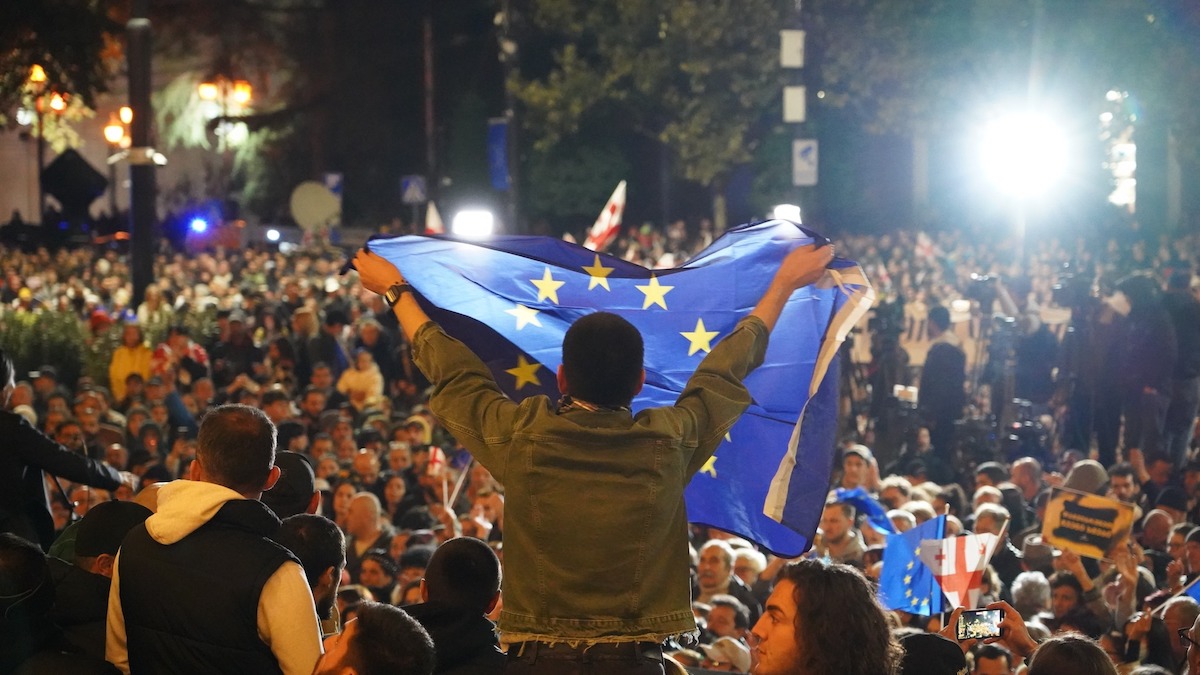
EU urges Georgian election investigation
The chairs of European parliamentary committees and Members of the European Parliament issued a joint statement regarding the October 26 parliamentary elections in Georgia, expressing concern over an “unprecedented number of systemic violations” observed during the election.
Among other demands, the statement calls for sanctions against Bidzina Ivanishvili, honorary chairman of the Georgian Dream party, and a review of EU visa liberalization with Georgia.
The statement was signed by heads of foreign and European committees from the parliaments of Austria, Belgium, the Czech Republic, Estonia, Finland, Italy, Ireland, France, Germany, Lithuania, Latvia, Poland, Moldova, and Ukraine, as well as members of the European Parliament.
“Standing strongly in solidarity with nations that adhere to the values of democracy, fundamental freedoms and rule of law. Standing strongly with the Georgian people and their European choice.
Noting with deep regret Georgia’s recent democratic backsliding, including the enactment of anti-European legislation limiting the space for independent civil society organizations and human rights.
Reiterating our deepest concern about the fact that Parliamentary elections in Georgia of October 26 were marked with the unprecedented number of incidents and systemic violations which were reported by international observers. Noting that integrity of elections and upholding the rule of law are an integral part and fundamentals of the European values to which Georgia as an EU candidate country has to demonstrate its commitment,” the statement reads.
The authors believe that an international investigation into the systematic violations observed during the elections is essential and urge Georgian authorities to ensure transparency and public access to voting records:
“All allegations of electoral manipulation (including, during the pre-election period), especially with regard to voter intimidation and vote buying must be transparently investigated. The allegations at hand are so serious, that only the independent international inquiry can address and investigate these elections and of all reported violations in the pre-electoral period and during the elections.
The statement also demand Georgian authorities make “the voting protocols available and publicly transparent, so that each voter can verify if the information on their voting fact, time and place is factually accurate” and repeal all laws that undermine “the fundamental rights and freedoms of Georgian citizens and organizations and runs counter to the values and principles upon which the EU is founded.”
Additionally, the statement calls for freezing funds involved in aid and cooperation projects with Georgian state and public institutions:
“We call on the European Union and the trans-Atlantic allies to impose sanctions on the officials and political leaders of Georgia, including Bidzina Ivanishvili, who are responsible for violations of the electoral process, including for the use of state institutions and administrative resources throughout the electoral process.
We call the freezing of all EU funds engaged in assistance and cooperation projects with the state and public institutions of Georgia with the exception of those dedicated to the supporting of civil society and the establishment of rule of law structures. At the same time, we call international partners to increase financial assistance to Georgia’s civil society and independent media, based on respect for democracy and the rule of law.“
Highlighting the importance of visa liberalization for Georgian citizens, especially the youth, European parliamentarians urge a review of this policy, including the potential suspension of the visa-free regime if the conditions mentioned above are not met.
According to official data, the ruling Georgian Dream party won the October 26 parliamentary elections with nearly 54% of the vote—12% higher than exit poll results. Observers and experts reported thousands of voting irregularities and instances of fraud in the election process.
EU urges Georgian election investigation
The https://t.co/peZ8uoLTwp

